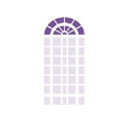Maths
Subject Leader: Mr Myers

Link Governor: Mrs Carol Jones
At The Arches, we believe that every child can succeed in Mathematics. We aim for all children to leave our school with a depth of knowledge as well as an understanding of the importance of Mathematics in everyday life.
Intent
Through our carefully planned curriculum it is our aim to promote and develop children’s enjoyment and enthusiasm for maths through exciting, practical, first-hand learning and opportunities to explore and investigate. We ensure that the statutory requirements of the National Curriculum for mathematics and numeracy are taught well and applied across all subjects of the curriculum. The school’s schemes of work and guidelines for mathematics are taught, thoroughly, systematically and progressively to all pupils by all staff. It is our intention to help pupils become mathematicians by developing their problem solving and reasoning skills so that they can apply their independent thinking and questioning across and beyond the curriculum. From EYFS onwards, pupils are confident in their understanding and application of their basic skills in number and the number system and that they build upon their prior learning at every stage. We encourage children to use their increasing knowledge, skills and understanding of mathematics to investigate, ask questions and solve challenging problems. We aim to develop pupils’ confidence and skill in mental calculation methods to underpin their written methods as they explore the areas of mathematics and address increasingly complex problems. It is our intention to bring mathematics to life and make it real, to ensure that children understand the importance of maths in their everyday day lives and make certain that all children, particularly those with special needs or disability and those finding it hard, are well supported.
Implementation
An appropriate range of teaching and learning strategies are used in all mathematics lessons to capture pupils’ interest and to promote effective learning and progress. Teachers use the guidelines, supported by an appropriate range of teaching and learning resources, to develop the knowledge, skills and understanding of every child, ensuring that all pupils, including those with SEND, achieve high standards for their ability and make appropriate progress. Children are encouraged to; ask questions, solve problems, discover new information, apply and consolidate their knowledge, skills and understanding through first-hand experience, investigations and practical work. Teachers make use of the immediate and wider environment to help pupils apply mathematics and see the relevance of mathematics to their own lives. We set challenging work, tasks and problems to increase children’s’ knowledge, skills and understanding and to extend their thinking. Teachers assess children’s work in mathematics through formative and summative judgements by; asking questions, observing learners during lessons, observing pupils solving practical problems and listening to pupils’ discussions. Work is marked regularly and frequently and pupils are given appropriate, clear feedback which tells them how well they have done and what they need to do next to improve. The mathematics subject leader supports the teaching and learning of mathematics by; providing strategic leadership and direction for mathematics, monitoring progress and standards across the school, reviewing and revising the mathematics policy, monitoring and supporting teachers in the teaching of mathematics, keeping staff up to date on new developments in mathematics, monitoring the effectiveness of the planning and development of mathematics, auditing, monitoring the effective and appropriate use of resources and obtaining new resources.
Impact
The above measures and strategies ensure that all pupils become fluent in the fundamentals of mathematics, including the varied and regular practice of increasingly complex problems over time. Learners develop the skills to reason mathematically by following a line of enquiry, understanding relationships and generalisations, and developing an argument, justification or proof using mathematical language. Effective teaching ensures that learners can solve problems by applying their mathematics with increasing sophistication, including breaking down problems into a series of simpler steps and persevering in seeking solutions. As pupils progress through the school they become increasingly confident mathematicians.
Further information can be found in our Maths policy below. Our personalised school calculation policy can also be found below alongside our school's schemes of work for every year group including FS2.

